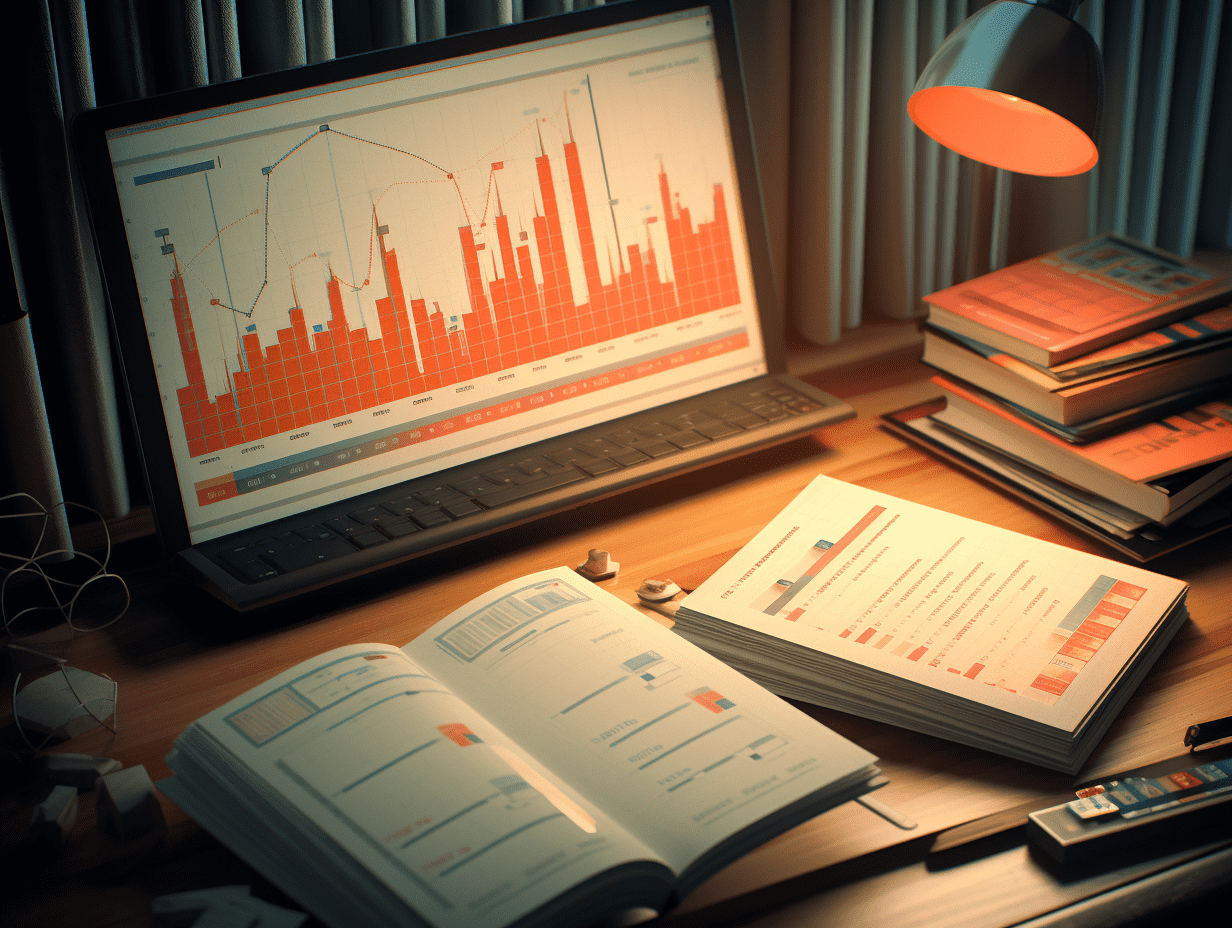
Overnight US stocks | Trump's tariffs "bloodbath" the market, the Russell 2000 index enters a bear market.
Due to Trump's announcement of imposing additional "equal tariffs" of 10% to 49% on almost all countries yesterday, the US stock market experienced a "bloodbath" on Thursday, with the Dow plunging 1680 points, the Nasdaq plummeting about 6%, and the S&P 500 index falling into correction territory. The Russell 2000 index fell 5%, hitting a new low in the past year. Since reaching a historical high on November 25 last year, the index has accumulated a 21% decline, officially entering a bear market. For most stocks, this was the biggest drop since the outbreak of the COVID-19 pandemic.
[US stocks] As of Thursday's close, the Dow fell 1679.39 points, or 3.98%, to 40,545.93 points; the Nasdaq fell 1050.44 points, or 5.97%, to 16,550.61 points; the S&P 500 index fell 274.45 points, or 4.84%, to 5,396.52 points. Tech stocks suffered heavy losses, with Apple Inc. (AAPL.US) falling 9%, losing about $300 billion in market value, Amazon.com, Inc. (AMZN.US) and NVIDIA Corporation (NVDA.US) dropping 8.9% and 7.8% respectively. Intel Corporation (INTC.US) rose 2% against the trend. The Nasdaq Golden Dragon Index fell 1.9%.
[European stocks] The German DAX30 index fell 670.18 points, or 3.00%, to 21,704.92 points; the UK FTSE 100 index fell 137.14 points, or 1.59%, to 8,471.34 points; the French CAC40 index fell 259.85 points, or 3.31%, to 7,598.98 points; the Euro Stoxx 50 index fell 194.30 points, or 3.66%, to 5,109.65 points; the Spanish IBEX35 index fell 143.63 points, or 1.08%, to 13,192.07 points; the Italian FTSE MIB index fell 1,380.20 points, or 3.59%, to 37,074.00 points.
[Asia-Pacific stock market] The Nikkei 225 index fell 2.77%, the KOSPI index in South Korea fell by 0.76%, and the Indonesian Composite Index rose by 0.59%.
[Foreign exchange] The US dollar index, which measures the US dollar against six major currencies, fell 1.67% to close at 102.073 in the forex market. At the end of the New York forex market, 1 euro exchanged for 1.1037 US dollars, higher than the previous trading day's 1.0854 US dollars; 1 pound exchanged for 1.3095 US dollars, higher than the previous trading day's 1.2979 US dollars. 1 US dollar exchanged for 146.43 yen, lower than the previous trading day's 149.93 yen; 1 US dollar exchanged for 0.8611 Swiss francs, lower than the previous trading day's 0.8824 Swiss francs; 1 US dollar exchanged for 1.4084 Canadian dollars, lower than the previous trading day's 1.4325 Canadian dollars; 1 US dollar exchanged for 9.7865 Swedish kronor, lower than the previous trading day's 9.9086 Swedish kronor.
[Cryptocurrency] Bitcoin remained stable, at $82,470.77; Ethereum rose by 0.51%, reaching $1,801.27.
[Metals] Spot gold fell by 0.54% to $3,117.40 per ounce, hitting a new high at $3,167.84 shortly after the opening of the Asia-Pacific trading session at 07:53 Beijing time before fluctuating down to $3,054.27 at 21:12 (shortly before the opening of the US stock market). COMEX gold futures for June fell by 1.07% to $3,132.40 per ounce, rising to $3,196.60 at 06:00 (NY market open) before falling to $3,073.50 to refresh the daily low at 21:12; August contract fell by 1.81% to $3,154.70, rising to $3,218.90 at 07:53, also approaching the historical high of $3,226.00 set on Wednesday. COMEX copper futures fell by 4.34% to $4.8125 per pound.
[Crude oil] Light crude oil futures for May delivery on the New York Mercantile Exchange fell by $4.76 to close at $66.95 per barrel, a decrease of 6.64%; June delivery of Brent crude oil futures in London fell by $4.81 to close at $70.14 per barrel, a decrease of 6.42%.
[Macro News]
Federal Reserve Vice Chairman Jefferson: There is still a lot of uncertainty in trade policy that needs time to assess. On Thursday, Federal Reserve Vice Chairman Jefferson refused to disclose details of how the Trump administration's comprehensive tariffs will affect his views on economic and monetary policy prospects, although he hinted at some concerns about their potential inhibiting effect on economic growth. "There is still a lot of uncertainty in trade, and this uncertainty will certainly put pressure on household and business investment," Jefferson said when asked about trade policy. He said he is not only evaluating the impact of trade policy, but also evaluating the net impact of all new policies, including fiscal, immigration, and regulatory. "Our current situation is that taking the time to carefully consider their impacts is important."
Analysts: Trump administration's "bad math" triggers market fears. On Thursday, as investors were shocked by Trump's historic tariff increase, Wall Street's fear index soared. As the US stock market and blue-chip stocks like Apple Inc. plummeted, the VIX volatility index, also known as the "fear index," surged by 30%, marking the largest single-day increase since the sell-off driven by the Federal Reserve in December of last year. "The market thinks this is not just bad economics, it's bad math," said Michael Block, market strategist at Third Seven Capital. Block pointed out that the Trump administration's calculation of equal tariffs seems to be suspicious. "They are ignoring every rule of classic micro and macroeconomics. This is policy-making that is the equivalent of a suicide bomb." Liz Ann Sonders, Chief Investment Strategist at Charles Schwab Corp, said that many investors used to think Trump was using tariffs as a negotiating tool. "Now the market is saying, wait a minute, this is actually happening. We should believe what he says," Sonders said. "Yesterday, we did not break free from uncertainty," she was referring to what Trump called "Liberation Day."
U.S. media: The White House emphasizes that there is no room for negotiation on tariffs. According to The Washington Post, three informed sources revealed that White House officials distributed internal talking points and told agents that President Trump's new global tariff plan should not be seen as a starting point for negotiations. The sources said that as the world tries to understand Trump's massive new import taxes, government internal directives instruct advisors to describe tariffs as a response to national emergencies rather than a basis for potential new trade negotiations. Two sources said that in addition to talking points, President Trump himself also told advisors that tariffs are not intended for negotiations.
The Republican Party is considering raising the highest tax rate for millionaires to 40%. According to informed sources, U.S. Republicans are considering establishing a new tax bracket for individuals earning $1 million or more to offset some of the costs of the tax bill, a stark contrast to the party's decades-long opposition to tax increases. Informed sources revealed that the new top tax rate would be between 39% and 40%. Trump administration officials and Capitol Hill allies are beginning to draft tax plans and hope to pass them in the coming months. In addition, Republicans are also considering raising the top tax rate for income exceeding $626,350 from the current 37% to 39.6%, meaning the top tax rate would return to the level set by former President Obama.
Tariff wave disrupts markets, and the dollar gives back all gains since Trump's election victory. As a new wave of tariffs disrupts global markets, the dollar has erased all gains since Trump's election victory in November last year. Paresh Upadhyaya, director of fixed income and currency strategy at Amundi, said, "The U.S. dollar bear market has arrived and is roaring." He added that because the U.S. is "hovering on the edge of recession," the dollar could fall by 10% this year. This is a sharp contrast to earlier this year when Trump's tax cuts and tariff policies were seen as reasons to bet on a dollar rebound. In February this year, U.S. Treasury Secretary Mnuchin said Trump's policies were "fully consistent" with a strong dollar, confirming the government's strong dollar stance. Ed Al-Hussainy, strategist at Columbia Threadneedle Investments, said, "We may be in the early stages of a structural sell-off in the dollar."
Mexican president announces measures to strengthen steel, pharmaceutical, and agricultural industries. Mexican President Sinbaum announced a series of economic measures today that will strengthen domestic production in the steel and aluminum, automotive, pharmaceutical, agriculture, and other sectors. "We will strengthen and expand the national manufacturing of the domestic automotive market, enhance innovation, research and development, and energy efficiency. We have discussed this plan with the automotive industry," Sinbaum said. While she did not say these measures were directly related to U.S. tariffs, the day before this announcement, Trump announced comprehensive new tariffs on many countries, including a "benchmark" tariff of at least 10% on imports. Although Mexico and Canada still have to pay previous tariffs, they are exempt from the new retaliatory tariffs. Sinbaum earlier stated that this treatment was due to Mexico's positive relationship with the U.S. At the press conference, Sinbaum repeatedly mentioned the strong relationship with the U.S. and pledged to continue dialogue on a basis of cooperation and "mutual respect."
[Stock News]
News reports that Intel Corporation (INTC.US) and Taiwan Semiconductor Manufacturing Co., Ltd. Sponsored ADR (TSM.US) are forming a joint venture. Intel Corporation's stock price rose after reports that the company has preliminarily agreed to establish a chip manufacturing joint venture with Taiwan Semiconductor Manufacturing Co., Ltd. Sponsored ADR. Intel Corporation rose over 8% at one point, erasing more than 5% of intraday losses, closing up 2.05%. According to reports, executives of both companies reached a preliminary agreement to establish a joint venture responsible for operating Intel Corporation's manufacturing facilities. Sources said Intel Corporation and other U.S. chip manufacturers will hold the majority of the plan's shares, including some of Intel Corporation's factories.
$2,300 to buy an iPhone? Under heavy tariffs, Apple Inc.'s (AAPL.US) phones may become luxury items. Due to tariffs, the beloved iPhones by American consumers may soon become more expensive. Analysts say Trump's tariffs could greatly alter the global trade landscape, and products like iPhones could be among the hardest hit, with prices increasing by 30% to 40% if Apple Inc. passes on costs to consumers. Currently, the cheapest iPhone on the market in the U.S. is priced at $799, but according to predictions by Rosenblatt Securities analysts, if Apple Inc. passes on costs to consumers, its price could rise by 43% to $1142. The more expensive iPhone 16 Pro Max with a 6.9-inch screen and 1TB of storage currently retails for $1599, but after passing on costs, the price could approach $2300. The entry-level iPhone 16e introduced in February this year sells for $599, and a 43% increase in price would bring it to $856.
Silicon Valley prominent investor: NVIDIA Corporation (NVDA.US) is prepared for Trump's tariffs. According to foreign media reports, Brad Gerstner, CEO of Altimeter Capital, said on Thursday that he and NVIDIA Corporation are moving out of the "bunker" into a safe position, expecting the chip manufacturer to beCapable of withstanding Trump's extensive tariffs. He said, "The strong demand for GPUs has broken records." He is referring to NVIDIA Corporation, which is driving the artificial intelligence boom. He said investors only need to listen to OpenAI, Alphabet Inc. Class C, and Musk's comments. One key reason why NVIDIA Corporation may be more able to resist Trump's tariff hikes is that semiconductors are on the exception list, which Gestner called a "wise exception" due to the importance of artificial intelligence. Gestner is concerned that tariffs may lead to economic recession, but he is relatively bullish on NVIDIA Corporation, stating that "the negative impact of tariffs will be far less than in other areas."Dahong Rating
HSBC: The upward potential of NVIDIA Corporation (NVDA.US) is limited. Its rating has been downgraded from buy to hold, with a target price lowered by $55 to $120.
RECOMMEND
©️2013 - 2025 GMT EIGHT Holdings. All Rights Reserved.
Contact: [email protected]


